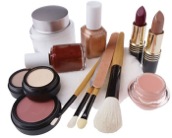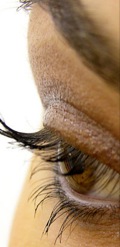
 The Safe Cosmetics Act of 2011 would require cosmetics companies to disclose harmful ingredients and chemical suppliers to provide safety data.
The Safe Cosmetics Act of 2011 would require cosmetics companies to disclose harmful ingredients and chemical suppliers to provide safety data.
The bill also gives the Food and Drug Administration the power to recall products. Stalled in the House last year, a new and more business-friendly version of the bill is making its way through Congress this summer.
The official stance from the Personal Care Products Council — which represents L'Oreal, Estee Lauder, and Procter & Gamble — is that the Safe Cosmetics Act of 2011 would tax the FDA's limited resources and put undue financial strain on the personal care industry during a recession. It may draft its own updates to the Federal Food, Drug, and Cosmetic Act with members of the House Energy and Commerce Committee.
New and improved: There was huge buzz around last year's bill [which stalled out in committee], but this time around, bill sponsors kept it under wraps until it was introduced in the House, hoping the industry would not have time to formulate an attack. So far it’s worked.
I was surprised to learn: Chemical suppliers to cosmetics companies largely conduct their own testing but have not been required to make results available to either the public or to manufacturers. Some of the small businesses I spoke with were particularly happy that this act requires disclosure of those tests. One product developer told me that her company had spent a lot of money commissioning its own tests of ingredients that the supplier had already tested but would not share.
Read more about this topic
One of the most important aspects of the Safe Cosmetics Act is how it relates to the broader fight to reform the 1976 Toxic Substances Control Act (TSCA) — the nation’s only law for regulating chemicals, a law that environmentalists and public health advocates say is woefully inadequate. The Safe Cosmetics Act represents Democrats finding a way to target and potentially change chemical regulation of consumer products without tackling full TSCA reform, which has been a futile effort so far; it is the country’s only environmental statute to never receive a congressional update. That would be a huge step and could pave the way to other piecemeal approaches.
Style tip: This bill directly targets the controversial Brazilian Blowout hair-straightening solution. Despite being labeled “formaldehyde free,” testing has found high levels of the chemical, a likely carcinogen. If public uproar over the solution continues to grow — the attorney general of California already filed a significant lawsuit — it could bring attention to the broader issue of chemicals in cosmetics and drum up support for the legislation.
I’ll be watching … industry and Republican responses. The Democrats behind the bill say they made changes from last year’s version to reduce the economic burden it would place on industry. That is clearly designed to appeal to Republicans and bolster its chances of getting a hearing, markup, or even a House vote. Last year, the bill didn’t make it anywhere, and in all likelihood, they’ll need at least one Republican backer to move the bill this time around.
Most people believe that the ingredients that go into cosmetic and personal care products – things that people use on their bodies, rub into their babies' skin – are all thoroughly tested for potential health effects before they go onto the market. This is not the case. The Safe Cosmetics Act aims to fill at least part of this gap. The current version is ambitious, and if the bill moves ahead, I'll be curious to see how well it is actually able gather this product safety information.
Missing in action: The bill now exempts micro businesses that produce cosmetics and personal care products from having to register with the FDA and small business from the related registration fee. It defines "small" as a business with less than $10 million in annual sales and "micro" as businesses with less than $2 million in sales. What would the law miss or lack if businesses of up to $10 million in sales do not fully participate?
I’ll be watching: When introduced last week, the Safe Cosmetics Act of 2011 had 10 cosponsors, all Democrats. Will the bill gain any Republican cosponsors? What will happen to it once it's considered by the House Energy and Commerce and Education and Workforce committees, given that the Republican-controlled House has thus far been staunchly anti-regulation?
Read more about this topic
| Tweet This Page |












